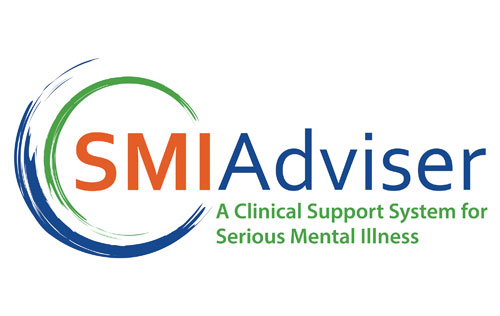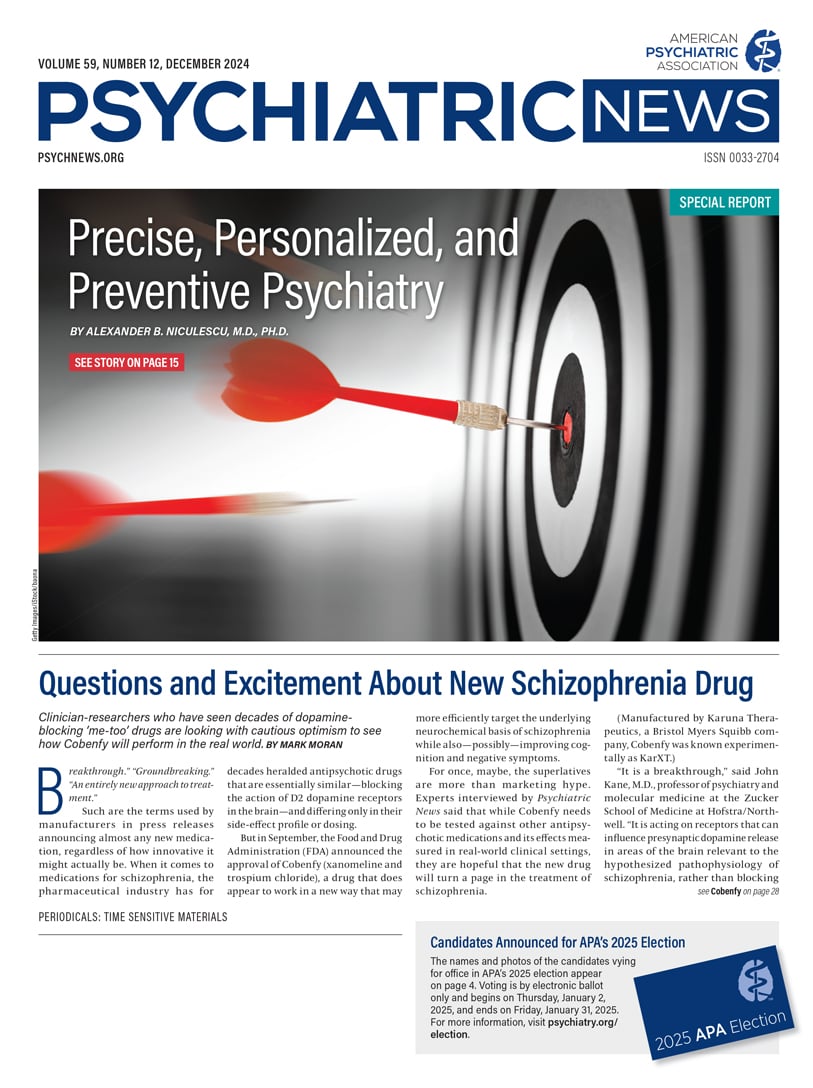Recently, Dr. Richardson found out that a long-term clozapine patient who had never suffered from clozapine-induced constipation would need a repeat colonoscopy due to “insufficient preparation.” It seemed logical that clozapine’s effects on gastrointestinal motility were responsible, but despite a relatively high sample size of clozapine patients, Dr. Richardson had never encountered this issue, which made it the perfect question to pose to SMI Adviser. But the only response that her favored bookmark offered was “HTTP Status: 404 (not found).” Even Google did not seem to have heard of SMI Adviser.
Had Dr. Richardson dreamed it? Not at all. But eventually she learned that SMI Adviser had been shut down three days before, and she hadn’t even had a chance to say goodbye.
In truth, had Dr. Richardson actually dreamed up the perfect online resource for severe mental illness, it would have looked a great deal like SMI Adviser. A single site met the needs of psychiatrists, trainees, non-psychiatric medical practitioners, patients, and their families with a user interface that made WebMD look like Weather.com. Have a patient whose Spanish-speaking parents have concerns about long-acting injectables? SMI Adviser had a handout. Forget the normal clozapine:norclozapine metabolic ratio again? It would spit out 1.3 faster than ChatGPT. Need statistics on suicide in patients with schizophrenia for your med student lecture? SMI Adviser had a finely curated list of resources. And if your answer didn’t already exist, you could request a consultation from an expert in the field.
This innovative platform was launched by the American Psychiatric Association in July 2018 and funded for five years by a $14.2 million federal grant through the Substance Abuse and Mental Health Services Administration. Over its lifetime, SMI Adviser became an indispensable resource for busy community clinicians seeking evidence-based education and expert consultation.
The program was notable for its ambitious scope, with goals that continually expanded based on ongoing needs assessments with stakeholders. It targeted various priorities in the field, including increasing clozapine and long-acting injectable use, supporting veterans and patients with dual diagnoses, advancing the use of peer support and recovery-oriented approaches, and reducing health inequities—and leveraged technology, free psychoeducation resources, and leading subject matter experts to accomplish its mission. Numerous publications and presentations at conferences were spawned from its work, and regular updates on new initiatives appeared in Psychiatric News.
In the end, SMI Adviser was more than just a website; it became a community and a symbol of the value funders placed on the treatment of severe mental illness.
The loss of SMI Adviser’s collected knowledge leaves a critical gap in services. Without a national center of excellence, we are left with a patchwork of community resources, like the North Carolina Clozapine Network, the Center for Practice Innovations in New York, and the clozapine CHAMPION-ECHO study in Maryland. Many states, however, lack an existing system and will be forced to reinvent the wheel, without even access to the content previously available through SMI Adviser as a starting point. This will only further exacerbate the country’s existing geographical inequities in care quality for our most ill and vulnerable patients.
As we look to the future, the introduction of another national center of excellence for SMI seems imperative if we are to continue building on the work already accomplished. ■


